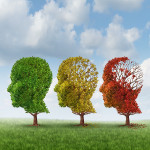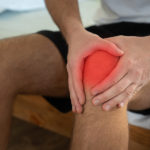By David Blyweiss, M.D., Advanced Natural Wellness
May 24, 2019
The dust has finally settled. People around the U.S. are enjoying eggs in their diets again. Everyone is happy.
Or so I thought.
Then BOOM! The hammer came down.
A study published in the March, 2019 issue of JAMA stirred things up and, yet again, tells us that eggs are one of our worst enemies.
Suddenly my patients are pulling out their phones to show me one of the many news stories written about the study. These articles basically claim that the new study shows eggs are linked to a higher risk of heart disease, cholesterol and early death.
Well, that’s just a bunch of bull.
If you don’t believe me, let me ask you one very important question.
Open your arteries, improve blood flow for a new health miracle...
Did you know your circulatory system has over 60,000 miles of arteries, veins and other blood vessels, if stretched end to end?
But as you age, your blood vessels undergo changes, which may cause them to stiffen, thicken and get clogged.
GOOD NEWS! Doctors have now identified a “Miracle Molecule” inside your arteries that helps OPEN your arteries and IMPROVE blood flow.
It’s what Dr. Valentin Fuster calls it, "One of the most important discoveries in the history of cardiovascular medicine."To you, that means...
- Healthy blood pressure
- Sharper mind and memory
- Skyrocketing energy and muscular strength
- Increased pleasure and passion in the bedroom
- Improved circulation to every cell and organ in your body
Go here to discover a new natural way to significantly boost the levels of this miracle molecule in YOUR body NOW!
Do you still eat exactly the same foods you did 17 years ago… 25 years ago… or 30 years ago?
If the answer is “no”, then you’ve already proven my point.
You see, the study in question bases its entire analysis on one-time food frequency questionnaires collected between 1985 and 2016. So the oldest questionnaires, completed at the time of enrollment, were completed more than 30 years ago.
It was a one time snap shot – never to be re-evaluated again!
Who the heck knows what these folks ate over the following years? Not the study authors, that’s for sure.
One of the co-authors actually points out this concern, stating: “”We have one snapshot of what their eating pattern looked like… people may have changed their diet, and we can’t account for that.” The study itself also notes that the “findings are observational and cannot establish causality.”
Still, after an average of 17.5 years follow-up, the authors concluded that eggs were “significantly associated with higher risk of incident CVD and all-cause mortality in a dose-response manner.”
This is not science at its best. In fact, it may not have an ounce of scientific evidence behind it. After all, I don’t eat anything like I did 10 years ago, let alone 30. I’ll bet you don’t, either.
Additionally, I have to point out that at least one of the study authors receives support and fees from makers of cholesterol lowering drugs – like AstraZeneca (crestor), Merck (zocor), Amgen (repatha) and Novartis (lescol).
Are You Suffering From...
- Love handles and a pot belly
- Romance that isn't what it used to
- Forgetfulness and inattention
- Low (or no) strength and endurance
- A sex drive that's shifted into neutral...or worse
If so...you may have Mature Male Burnout. Click here to discover more about this unique condition and what you can do about it.
So there is plenty to gain by keeping the cholesterol scare alive.
In the meantime, I’ll share an observation with you that has become exceedingly obvious to me over the years.
A lot of people who eat eggs are much more interested in the bacon, sausage, ham and cheese that accompany them. In fact, these processed meats are often the focal point of the meal. (This easily explains the popularity of foods like sausage biscuits, ham stuffed English muffins and bacon croissants.)
Yet, this is an observation that many egg studies fail to take into consideration. And when researchers reject the idea of accounting for all dietary factors, it can skew results dramatically.
This being said, there is just too much data missing from the JAMA study to make any correlation between egg intake, cholesterol, cardiovascular disease and death.
More importantly, in recent years there is plenty of solid evidence that shows an entirely different story.
The Healthy Side of Eggs
Let me be very clear on this.
There is absolutely no scientific proof that eating eggs increase blood levels of LDL cholesterol. There is also nothing that links eating eggs to a greater risk of stroke or heart disease.
In fact, more and more data is showing that people who eat an egg each day actually have a lower risk of stroke and heart problems.
And the truth is, eggs essentially have a positive effect on your LDL cholesterol rather than a negative impact. It turns out that eating eggs increases the particle size of low density lipoproteins.
This is a good thing, because small dense LDL particles tend to slip into your arteries and create blockages. This means large, bouncy LDL particles is preferable… and a huge advantage to your cardiovascular health
Eggs are also great for your mood, brain function and eye health.
But keep this in mind. There are healthy ways to eat eggs. Ones that don’t include a pack of bacon or slab of ham.
You can go for an egg scramble, omelet or frittata with spinach, peppers, onions and other veggies.
I like to keep my eggs intact (not breaking the yellows) to keep the cholesterol in the eggs from oxidizing. Simple ways to keep them intact include preparing them over easy, over well, poached or hard boiled. Then enjoy them with a side of fruit.
I personally prefer pastured eggs. They are, by far, the healthiest eggs you’ll find today.
SOURCES:
Zhong VW, et al. Associations of Dietary Cholesterol or Egg Consumption With Incident Cardiovascular Disease and Mortality. JAMA. 2019 Mar 19;321(11):1081-1095.
Bad news for egg lovers. News Release. Northwestern University. Mar 2019.
Alexander DD, et al. Meta-analysis of Egg Consumption and Risk of Coronary Heart Disease and Stroke. J Am Coll Nutr. 2016 Nov-Dec;35(8):704-716.
Xu L, et al. Egg consumption and the risk of cardiovascular disease and all-cause mortality: Guangzhou Biobank Cohort Study and meta-analyses. Eur J Nutr. 2018 Apr 21.
Poly C, et al. The relation of dietary choline to cognitive performance and white-matter hyperintensity in the Framingham Offspring Cohort. Am J Clin Nutr. 2011 Dec; 94(6): 1584–1591.
Goodrow EF, et al. Consumption of one egg per day increases serum lutein and zeaxanthin concentrations in older adults without altering serum lipid and lipoprotein cholesterol concentrations. J Nutr. 2006 Oct;136(10):2519-24.







